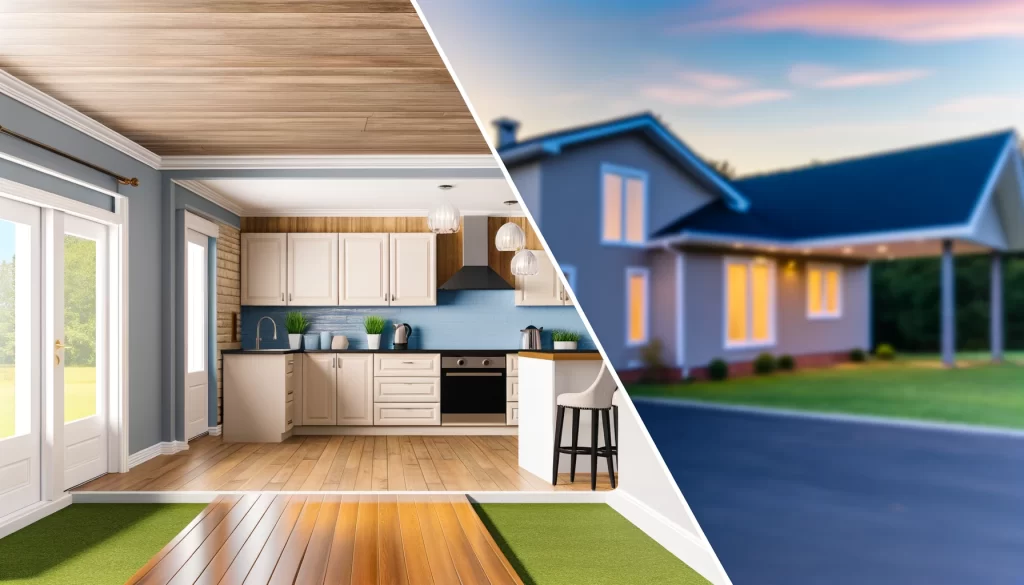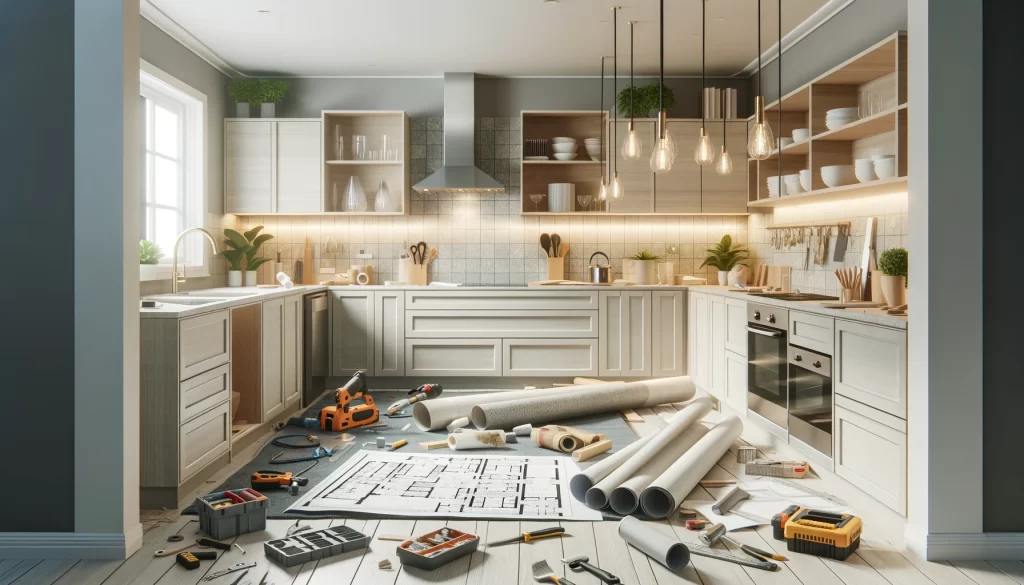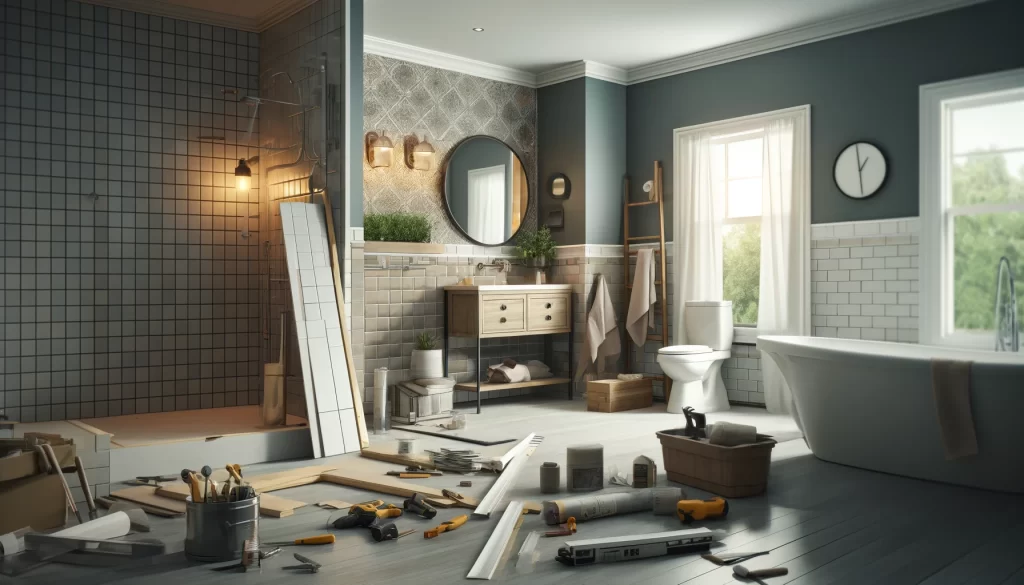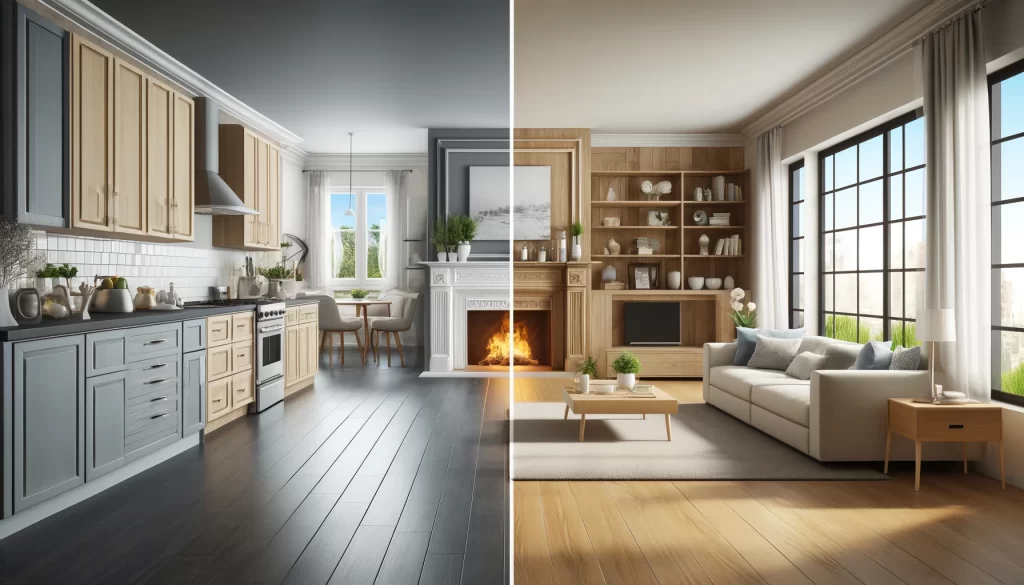
Deciding whether to remodel your existing home or buy a new one is a significant choice that depends on various factors including cost, time, emotional ties, and long-term benefits. This article delves into these aspects to help you make an informed decision.
Table of Contents
Key Takeaways
- Cost Considerations: Remodeling can be more cost-effective but comes with potential hidden expenses. Buying a new home often involves higher upfront costs.
- Time and Disruption: Remodeling can be time-consuming and disruptive while buying a new home offers a quicker, less stressful transition.
- Personalization: Remodeling allows for customization of your existing space, whereas buying new can offer modern amenities but less personalization.
- Investment Value: Both options can increase your home’s value, but remodeling might offer a better return on investment in the current market.
Cost Comparison
| Factor | Remodeling a Home | Buying a New Home |
|---|---|---|
| Pros | Generally cheaper, customizable | Modern amenities, move-in ready |
| Cons | Hidden costs, time-consuming, stressful | Expensive, may require customization or upgrades |
| Average Costs | Kitchen: $4,000 – $60,000; Bathroom: $4,000 – $60,000; Extensive projects > $30,000 | Median listing price: $590,000; Closing costs: 2%-5% of home price |
| Financing | Home equity loans, family loans, contractor/vendor loans | Mortgage, down payment, closing costs |
Remodeling your home can save costs, especially if the structure is sound and only needs updates. However, hidden costs like structural damage can arise.
On the other hand, buying a new home includes modern features but often at a higher price, with additional costs like closing fees and potential upgrades
Time and Stress Factors

Remodeling a Home
Pros:
- Gradual Transition: Allows for renovating one room at a time.
- Cost-Effective for Partial Upgrades: This option can be better if you do not want a complete overhaul.
Cons:
- Time-Consuming: Renovations can lead to significant disruptions in daily life.
- Delays: Unexpected setbacks can add to the stress.
Buying a New Home
Pros:
- Faster Process: Generally quicker and more straightforward.
- Fresh Start: Allows you to begin anew with modern amenities.
Cons:
- Relocation Stress: Moving can be stressful and involve a longer commute or new community adjustment.
- Higher Expense: Often more costly compared to renovating.
Investment Value

| Investment Factor | Remodeling a Home | Buying a New Home |
|---|---|---|
| Value Increase | Can increase with modern upgrades (kitchen, bathroom, energy efficiency) | Modern features can boost value, desirable neighborhoods appreciate |
| Limitations | ROI may not cover full renovation costs, neighborhood limits value | Higher upfront costs, potential market fluctuations |
Both options can add value to your property. Remodeling can modernize your home, but the overall neighborhood property values may limit the ROI.
Buying a new home in a desirable area can be a smart investment, but it’s crucial to consider market conditions and long-term goals
Customization and Personalization
Remodeling
Allows personalization to suit your needs and tastes, creating a space that fits your lifestyle.
Buying a New Home
Offers a fresh start with a home that meets modern standards but may require compromises on certain features to fit your budget.
Neighborhood and Location
Remodeling
It enables you to stay in your current neighborhood, avoiding the hassle of moving. However, the value increase may be limited by the neighborhood.
Buying a New Home
It allows you to move to a new area, which might come with better amenities and higher property values. However, this involves moving costs and adjusting to a new community.
Practical Tips
- Assess Your Needs: Determine if your current home can meet your future needs with renovations or if a new home is necessary.
- Set a Budget: Evaluate your financial situation and set a realistic budget for remodeling or buying a new home.
- Consider ROI: Research potential returns on investment for both options in your area.
- Consult Professionals: Seek advice from real estate agents and contractors to understand the full scope of costs and benefits.
- Evaluate Emotional Factors: Consider your attachment to your current home and neighborhood versus the excitement of a new start.
Additional Insights
Budget and Financing
When deciding between remodeling and buying a new home, consider your budget. Remodeling can be cheaper and quicker but may offer less customization. On the other hand, buying a new home provides full customization but is more expensive and time-consuming. Remember the 30% rule, which suggests homeowners should not spend more than 30% of their monthly income on mortgage payments, including property taxes and insurance.
Renovation Costs
For renovation costs, budget around 15% of your home’s value for a kitchen renovation and 10% for a bathroom renovation. General renovation costs range from $50 to $400 per square foot, with labor costs often doubling or tripling the contractor’s estimate. Always set aside 20% of your budget for unexpected expenses. Spending 5-15% of your home’s value on renovations is generally advisable to avoid overcapitalizing.
Cost of Renovating vs. Rebuilding
In terms of cost-effectiveness, replacing a house is generally cheaper and quicker than rebuilding, but rebuilding allows for more customization and can increase resale value. With proper planning and budget allocation, $100,000 can suffice for a significant house renovation, covering new plumbing, appliances, structural improvements, a new roof, and an HVAC system.
Adding Value to Your Home
What adds the most value to a house? Upgrading kitchens, bathrooms, and outdoor spaces typically yields the highest return on investment. Conversely, neglected maintenance, outdated kitchens and bathrooms, poor landscaping, location decline, and local foreclosures can decrease property value.
Importance of Location
The number one factor determining a home’s value is its location. Proximity to jobs, schools, and amenities significantly influences property value. When considering renovations, focus on improving the kitchen, bathroom, and outdoor spaces, as these areas add the most value to a house.
Conclusion
The decision to remodel or buy a new home depends on your needs, budget, and priorities. Weighing the financial aspects, customization potential, and current market conditions can help you make an informed choice that aligns with your long-term goals. Consider consulting with real estate agents and contractors to gain valuable insights for making the best decision for your situation.


